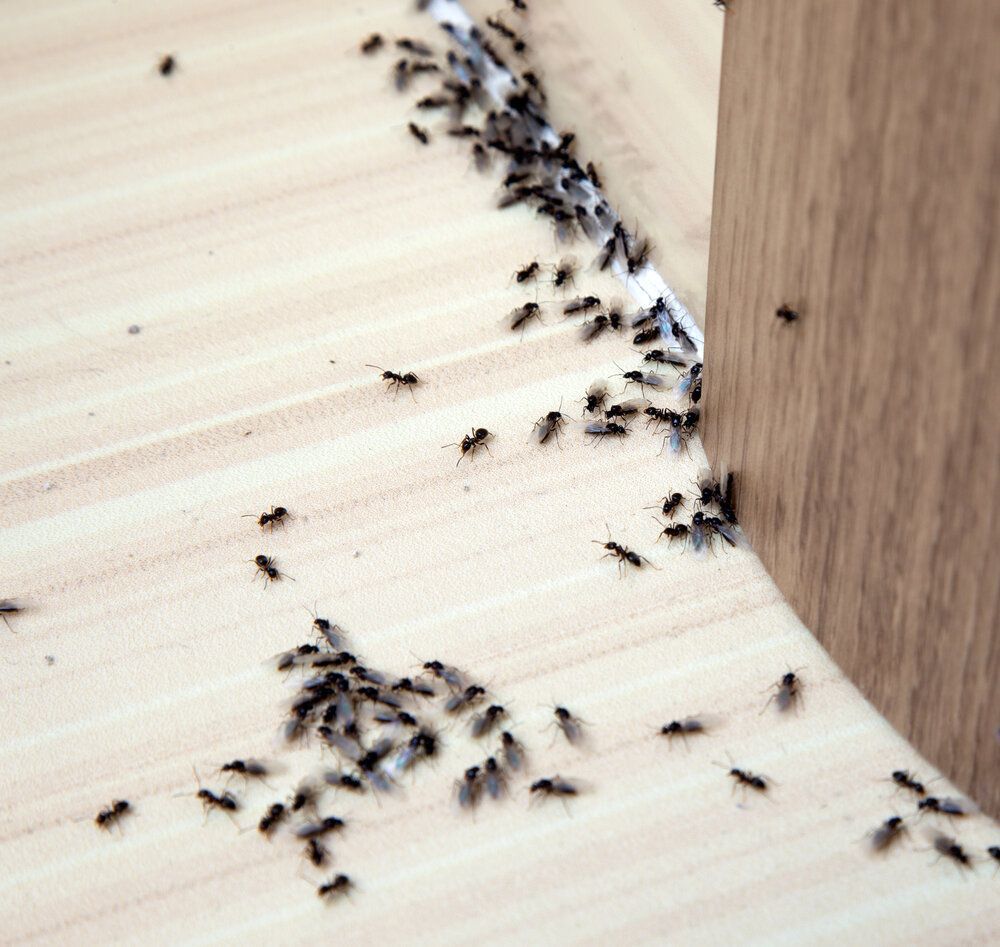What Ant Deterrent Works Best Around the House?
Best Ways to Deter Ants from Invading Your Home
Ants are persistent pests, but there are effective natural ways to keep them from making your house their home. Below are some of the best deterrents you can use to keep ants away without resorting to harsh chemicals.
Why You Should Care About Ant Infestations
While most ants aren’t dangerous, they can contaminate food and surfaces with bacteria. Some species can even damage property, making it important to stop infestations early.

Natural Ant Deterrents
1. Borax (Sodium Tetraborate)
Borax is a naturally occurring mineral that disrupts an ant’s digestive system when consumed. When mixed with sugar, it attracts ants who carry it back to their colonies.
How to Use:
- Mix ½ teaspoon of borax with 8 teaspoons of sugar and 1 cup of warm water.
- Soak cotton balls in the solution and place them near ant trails.
- Keep this mixture out of reach of pets and children.
2. Diatomaceous Earth
This fine powder, made from fossilized diatoms, dries out ants by absorbing the oils in their exoskeletons, killing them safely without chemicals.
How to Use:
- Sprinkle diatomaceous earth along baseboards, windows, and other ant pathways.
- Reapply if the area gets wet, as moisture reduces its effectiveness.
3. Essential Oils
Ants dislike strong smells like peppermint, tea tree, and lemon eucalyptus oils, which disrupt their scent trails.
How to Use:
- Mix 10–20 drops of essential oil with water in a spray bottle.
- Spray entry points like doors, windows, and baseboards.
4. Vinegar
Vinegar is an affordable and eco-friendly way to erase ant scent trails, preventing them from finding food.
How to Use:
- Mix equal parts white vinegar and water.
- Spray directly on ants and wipe the area down after use.
5. Cinnamon
The strong smell of cinnamon confuses ants and can also block their breathing passages.
How to Use:
- Sprinkle ground cinnamon along ant trails and entry points.
6. Pepper
Both cayenne and black pepper irritate ants, driving them away from treated areas.
How to Use:
- Sprinkle pepper along known ant paths or mix with water to create a spray.
7. Citrus Peels
Ants dislike the smell of citrus, and the acidity of citrus peels can help erase their scent trails.
How to Use:
- Grind dried citrus peels into a powder and sprinkle it around ant entry points.
8. Chalk
Drawing a line of chalk around entry points can confuse ants and temporarily block their trails.
How to Use:
- Draw a thick line of chalk around doorways, windows, and other entry points.
Ant Prevention Tips
- Seal Cracks and Gaps: Use caulk to block entry points around windows, doors, and foundations.
- Store Food Properly: Keep food in airtight containers and clean up crumbs quickly.
- Regular Cleaning: Sweep, mop, and wipe down counters regularly to remove food sources.
- Yard Maintenance: Keep bushes trimmed and remove debris where ants could nest outside.
By combining these natural remedies with preventative measures, you can keep ants out of your home for good. If the problem persists, don’t hesitate to contact a
professional pest control company for expert help.
What To Do If You Can’t Eliminate the Ants
Sometimes, no matter how diligent you are with natural remedies or DIY solutions, ants can still find their way into your home. The best course of action often depends on the specific type of ant infestation you're dealing with and the severity of the problem. Here’s what to do if you’ve tried everything and the ants keep coming back:
Why Natural Methods Sometimes Aren’t Enough
Natural methods like borax, diatomaceous earth, and essential oils can be effective in many cases, but larger or more stubborn infestations may require professional help. Ants are social insects that can form massive colonies, and some species, like carpenter ants, can cause structural damage to your home. Additionally, ants can carry bacteria that contaminate food and surfaces, making them a health concern.
When to Call a Professional Pest Control Service
If natural solutions aren’t working, it’s time to reach out to a pest control expert. Professional exterminators have specialized knowledge and tools to identify the source of the infestation, eliminate it, and prevent future outbreaks. They can also offer long-term solutions, such as barriers and baits that target the colony as a whole, rather than just repelling individual ants.
Signs You Need Professional Help:
- Ant Infestation Persists: If ants keep returning despite your best efforts, their nest may be located in a hard-to-reach spot or in an area you haven’t yet treated.
- Structural Damage: If you suspect you have carpenter ants, which can weaken wooden structures, immediate professional intervention is essential.
- Health and Safety Concerns: If ants are contaminating food, surfaces, or living spaces and causing health issues, professional help can ensure the infestation is eradicated safely.
How a Professional Pest Control Service Can Help
- Expert Identification: A pest control professional can identify the species of ant you’re dealing with and tailor a treatment plan accordingly.
- Effective Solutions: Professionals use proven methods like baiting, liquid treatments, and sealing off entry points to stop ants at the source.
- Long-Term Prevention: Pest control services can help you maintain an ant-free home by providing guidance on sealing cracks, maintaining cleanliness, and scheduling regular inspections.
If you live in Bellevue, WA, and are struggling to eliminate ants from your home, Bellevue Pest Control By Bamboo can help. We offer targeted solutions to eradicate ants and keep them from returning. Contact us today to protect your home and family from these persistent invaders!
For service call: (425) 230-6855
Copyright © 2024 - Bellevue Pest Control via Bamboo All Rights Reserved
